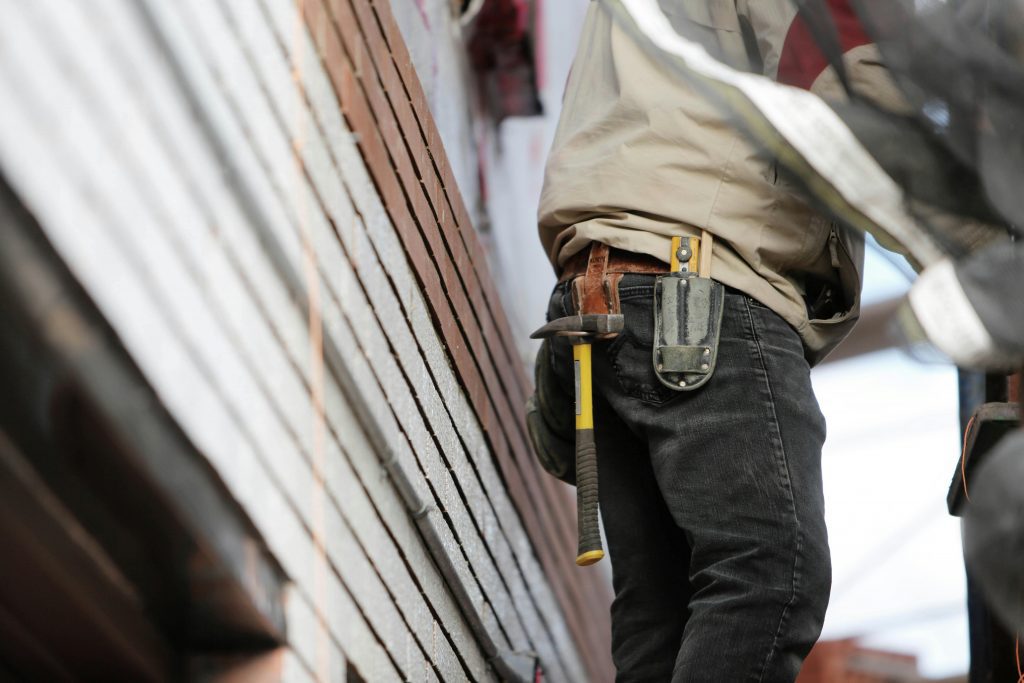Heat pumps are becoming an increasingly popular choice for domestic heating and cooling in the United Kingdom, and for good reason. These innovative systems operate by transferring heat from one location to another, rather than generating heat directly like traditional heating systems. This makes them highly energy efficient, as they can provide up to four times the amount of energy they consume.
This means that for every unit of electricity used to power the heat pump, it can produce three or four units of heat, making them a remarkably cost-effective option for home heating. In addition to their energy efficiency, heat pumps offer the advantage of providing both heating and cooling capabilities in a single system. This means that they can be used to maintain a comfortable temperature in your home throughout the year, without the need for separate heating and cooling systems.
This versatility can also save space in your home, as you won’t need to accommodate a separate air conditioning unit. Heat pumps are also known for their quiet operation, making them a discreet and unobtrusive choice for domestic heating and cooling. Overall, the benefits of heat pumps make them an attractive option for homeowners seeking to reduce their energy bills whilst also minimising their environmental impact.
When it comes to comparing the cost of heat pumps with traditional heating systems, there are several factors to consider. While the initial cost of installing a heat pump may be higher than that of a traditional heating system, the long-term savings can often outweigh this initial investment. This is due to the high energy efficiency of heat pumps, which can result in significantly lower energy bills over time.
In fact, many homeowners find that they can recoup the initial cost of installing a heat pump through energy savings within just a few years. In addition to lower energy bills, heat pumps also offer the benefit of requiring less maintenance than traditional heating systems. This can result in further cost savings over time, as you won’t need to spend as much on repairs and upkeep.
Furthermore, heat pumps have a longer lifespan than traditional heating systems, meaning that you won’t need to replace them as often. When considering the cost of heat pumps versus traditional heating systems, it’s important to take into account not only the initial installation cost, but also the long-term savings and benefits that come with choosing a more energy efficient and low-maintenance option.
Summary
- Heat pumps provide efficient heating and cooling, reducing energy consumption and lowering utility bills.
- When comparing costs, heat pumps are generally more cost-effective in the long run compared to traditional heating systems.
- Heat pumps are eco-friendly, producing lower carbon emissions and reducing environmental impact.
- Not all homes are suitable for heat pump installation, so it’s important to assess your home’s suitability before making a decision.
- Regular maintenance of heat pumps can lead to long-term savings and increased lifespan of the system.
Eco-Friendly Home Heating: The Advantages of Heat Pumps
One of the most compelling reasons to choose a heat pump for your home heating and cooling needs is their environmental benefits. Heat pumps are incredibly energy efficient, as they transfer heat from one place to another rather than burning fuel to generate heat. This means that they produce fewer greenhouse gas emissions than traditional heating systems, making them a more environmentally friendly choice for home heating.
By choosing a heat pump, you can reduce your carbon footprint and contribute to a healthier planet for future generations. In addition to their energy efficiency, heat pumps also offer the benefit of using renewable energy sources. Many heat pumps are powered by electricity, which can be generated from renewable sources such as wind or solar power.
This means that by using a heat pump, you can further reduce your environmental impact by relying on clean, sustainable energy sources. Overall, the eco-friendly advantages of heat pumps make them an attractive option for homeowners who are looking to reduce their environmental impact and create a more sustainable home heating and cooling solution.
Is Your Home Suitable for a Heat Pump Installation?

While heat pumps offer many benefits, it’s important to consider whether your home is suitable for a heat pump installation before making the switch. One important factor to consider is the size and layout of your home. Heat pumps work best in well-insulated homes with open floor plans, as this allows for efficient air circulation and heat distribution.
If your home is poorly insulated or has a complex layout, it may be more challenging to achieve optimal performance from a heat pump. Another important consideration is the outdoor space available for installing the heat pump unit. Most heat pumps require an outdoor unit to transfer heat, so it’s important to have enough space for this installation.
Additionally, it’s important to consider the climate in your area, as extreme temperatures can affect the efficiency of a heat pump. If you live in an area with very cold winters or very hot summers, you may need to choose a heat pump model that is specifically designed to handle these temperature extremes. By carefully considering these factors, you can determine whether your home is suitable for a heat pump installation and make an informed decision about whether it’s the right choice for your heating and cooling needs.
Maintenance and Long-Term Savings with Heat Pumps
| Metrics | Heat Pumps |
|---|---|
| Reduced Maintenance | Heat pumps have fewer moving parts, reducing the need for frequent maintenance. |
| Long-Term Savings | Heat pumps are more energy efficient, leading to lower long-term operating costs. |
| Extended Lifespan | Heat pumps have a longer lifespan compared to traditional heating systems, reducing replacement costs. |
| Lower Repair Costs | Heat pumps are less prone to breakdowns, resulting in lower repair expenses over time. |
One of the key advantages of heat pumps is their low maintenance requirements, which can result in long-term cost savings for homeowners. Unlike traditional heating systems that require regular servicing and upkeep, heat pumps typically only require basic maintenance such as cleaning or replacing filters and ensuring that the outdoor unit is free from debris. This can result in lower maintenance costs over time, as well as less hassle and inconvenience for homeowners.
In addition to lower maintenance costs, heat pumps also offer long-term savings through their energy efficiency. By using less energy to provide heating and cooling for your home, heat pumps can significantly reduce your energy bills over time. This means that while the initial cost of installing a heat pump may be higher than that of a traditional heating system, you can recoup this investment through lower energy bills within just a few years.
Furthermore, many homeowners find that the long lifespan of heat pumps means that they won’t need to replace them as often as traditional heating systems, resulting in further long-term savings. Overall, the low maintenance requirements and long-term cost savings make heat pumps an attractive option for homeowners looking to reduce their heating and cooling costs.
Government Incentives and Grants for Heat Pump Installation
In many countries, there are government incentives and grants available to encourage homeowners to install energy efficient heating and cooling systems such as heat pumps. These incentives can take the form of tax credits, rebates, or grants that help offset the initial cost of installing a heat pump. By taking advantage of these incentives, homeowners can make the switch to a more energy efficient heating and cooling system at a lower cost, making it a more accessible option for many households.
In addition to government incentives, there are also financing options available to help homeowners cover the upfront cost of installing a heat pump. Many banks and financial institutions offer low-interest loans or other financing options specifically designed for energy efficient home improvements. By taking advantage of these financing options, homeowners can spread out the cost of installing a heat pump over time, making it more manageable and affordable.
Overall, government incentives and financing options can make it easier for homeowners to make the switch to a more energy efficient heating and cooling system such as a heat pump. By taking advantage of these incentives and financing options, homeowners can reduce their environmental impact, save money on their energy bills, and create a more comfortable and sustainable home environment.
Making the Switch: Considerations and Next Steps for Installing a Heat Pump

If you’re considering making the switch to a heat pump for your home heating and cooling needs, there are several important considerations to keep in mind. The first step is to assess whether your home is suitable for a heat pump installation, taking into account factors such as insulation, layout, outdoor space, and climate. Once you’ve determined that your home is suitable for a heat pump installation, the next step is to research different heat pump models and choose one that best meets your needs and budget.
After selecting a heat pump model, the next step is to find a qualified and experienced HVAC contractor to handle the installation. It’s important to choose a contractor who is familiar with heat pump installations and can ensure that the system is properly sized and installed for optimal performance. Once the installation is complete, it’s important to schedule regular maintenance to keep your heat pump running efficiently and effectively.
Overall, making the switch to a heat pump requires careful consideration of your home’s suitability, research into different models, and finding a qualified contractor for installation. By taking these steps and making an informed decision about installing a heat pump, you can enjoy the many benefits of energy efficient home heating and cooling while reducing your environmental impact and saving money on your energy bills.
If you’re considering switching to a heat pump to save on heating bills, you may also be interested in learning about the future of sustainable energy with green hydrogen boilers. This article discusses how green hydrogen boilers are revolutionizing heating and could be a viable option for eco-friendly home heating. Check out the full article here.
FAQs
What is a heat pump?
A heat pump is a heating and cooling system that transfers heat between the indoors and outdoors. It can be used to both heat and cool a building, making it a versatile option for maintaining indoor comfort.
How does a heat pump work?
A heat pump works by transferring heat from one place to another using a refrigerant. In the winter, it extracts heat from the outdoor air and transfers it indoors to heat the building. In the summer, it removes heat from indoors and transfers it outside to cool the building.
Are heat pumps energy efficient?
Heat pumps are known for their energy efficiency, as they can provide up to 4 units of heat for every 1 unit of electricity used. This makes them a cost-effective option for heating and cooling compared to traditional heating systems.
Can a heat pump save on heating bills?
Switching to a heat pump can potentially save on heating bills, especially if you are currently using electric resistance heating or oil heating. Heat pumps are more efficient and can lower energy consumption, leading to cost savings over time.
Are there any drawbacks to using a heat pump?
One potential drawback of using a heat pump is that it may not be as effective in extremely cold temperatures, as it relies on extracting heat from the outdoor air. In such cases, a backup heating system may be needed to supplement the heat pump.
Is it worth switching to a heat pump?
The decision to switch to a heat pump depends on various factors such as the climate, existing heating system, and energy costs. It is advisable to consult with a professional to assess whether a heat pump is a suitable and cost-effective option for your specific situation.


